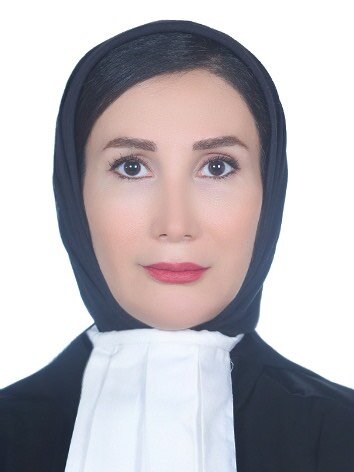Best Asylum Lawyers in Tehran
Share your needs with us, get contacted by law firms.
Free. Takes 2 min.
List of the best lawyers in Tehran, Iran
About Asylum Law in Tehran, Iran
Asylum law in Tehran, Iran, provides a framework for individuals seeking protection from persecution in their home country due to race, religion, nationality, membership in a particular social group, or political opinion. Iran is a signatory to the 1951 Refugee Convention and its 1967 Protocol, which guide the country's handling of asylum seekers. However, the practical implementation of these laws may vary and can evolve over time due to political and social changes within the country.
Why You May Need a Lawyer
Individuals may require legal assistance with asylum cases for several reasons, including language barriers, complex legal procedures, and the need for a proper presentation of their case. Lawyers can help gather relevant evidence, prepare applications, and provide representation in legal proceedings. Asylum seekers often face unique challenges, including navigating bureaucratic systems, which legal experts can help manage effectively.
Local Laws Overview
In Tehran, the key aspects of local laws relevant to asylum focus on compliance with international refugee protection standards. Asylum seekers may need to register with local authorities and may undergo interviews to prove their need for protection. The process involves careful documentation and demonstrating a legitimate fear of persecution. Local regulation can also affect asylum seekers' ability to work, access services, and their general treatment while residing in Iran.
Frequently Asked Questions
What is the process for seeking asylum in Tehran?
To seek asylum in Tehran, individuals generally need to apply to the Bureau for Aliens and Foreign Immigrants Affairs (BAFIA), providing supporting documents and potentially undergoing multiple interviews to demonstrate their claim.
What rights do asylum seekers have in Tehran?
Asylum seekers in Tehran are entitled to rights under international law, which include protection from deportation to a country where they may face persecution, access to basic services, and the right to apply for work permits.
How long does the asylum process take in Tehran?
The time taken for asylum claims to be processed in Tehran can vary significantly depending on the complexity of the case and the current political environment. It could range from a few months to several years.
Can family members of an asylum seeker join them in Tehran?
Family reunification policies may allow close family members of an asylum seeker to apply to join them in Tehran; however, this is subject to legal requirements and processes.
What happens if my asylum application is denied?
If an asylum application is denied, individuals may have the right to appeal the decision or seek review through legal channels. Consultation with a lawyer can help navigate this process.
How can I find legal assistance for asylum cases in Tehran?
Legal assistance can be sought from various non-governmental organizations that specialize in refugee law, local law firms with expertise in asylum, or through networks of refugee rights advocates in Tehran.
Are there any specific risks for asylum seekers in Tehran?
Asylum seekers may face risks such as detention, discrimination, or limited access to social services. Legal representation can help mitigate some of these risks by ensuring the rights of asylum seekers are protected.
Can asylum seekers work in Tehran?
Work rights for asylum seekers in Tehran can be limited and are subject to obtaining the necessary permits. Legal advice can facilitate understanding the process and gaining work authorization.
Do I need to speak Farsi to apply for asylum in Tehran?
While it is beneficial to understand Farsi, especially for communication during legal procedures, interpreters may be available to assist non-Farsi-speaking asylum seekers.
What documents are crucial when applying for asylum?
Essential documents for an asylum application include identification, travel documents, any evidence of persecution, and proof of circumstances that justify the asylum claim. Gathering these well in advance can aid the application process.
Additional Resources
For those seeking additional information or assistance, several resources can be helpful:
- Bureau for Aliens and Foreign Immigrants Affairs (BAFIA)
- Refugee and Migrant NGOs operating within Iran
- UNHCR Office in Iran
- Legal clinics and support groups that focus on refugee rights
Next Steps
If you are seeking legal assistance for an asylum case in Tehran, the following steps can guide you:
- Contact a lawyer or legal aid organization specializing in asylum law.
- Gather all relevant documents and evidence for your case.
- Stay informed about your rights and the legal processes involved.
- Prepare for interviews and legal procedures with the aid of your legal counsel.
- Consider reaching out to support groups for additional assistance and guidance.
Being proactive and well-prepared can significantly enhance your ability to navigate the asylum process successfully.
Lawzana helps you find the best lawyers and law firms in Tehran through a curated and pre-screened list of qualified legal professionals. Our platform offers rankings and detailed profiles of attorneys and law firms, allowing you to compare based on practice areas, including Asylum, experience, and client feedback.
Each profile includes a description of the firm's areas of practice, client reviews, team members and partners, year of establishment, spoken languages, office locations, contact information, social media presence, and any published articles or resources. Most firms on our platform speak English and are experienced in both local and international legal matters.
Get a quote from top-rated law firms in Tehran, Iran — quickly, securely, and without unnecessary hassle.
Disclaimer:
The information provided on this page is for general informational purposes only and does not constitute legal advice. While we strive to ensure the accuracy and relevance of the content, legal information may change over time, and interpretations of the law can vary. You should always consult with a qualified legal professional for advice specific to your situation.
We disclaim all liability for actions taken or not taken based on the content of this page. If you believe any information is incorrect or outdated, please contact us, and we will review and update it where appropriate.












